#portraits only come to life once the subject is confirmed deceased
Explore tagged Tumblr posts
Text
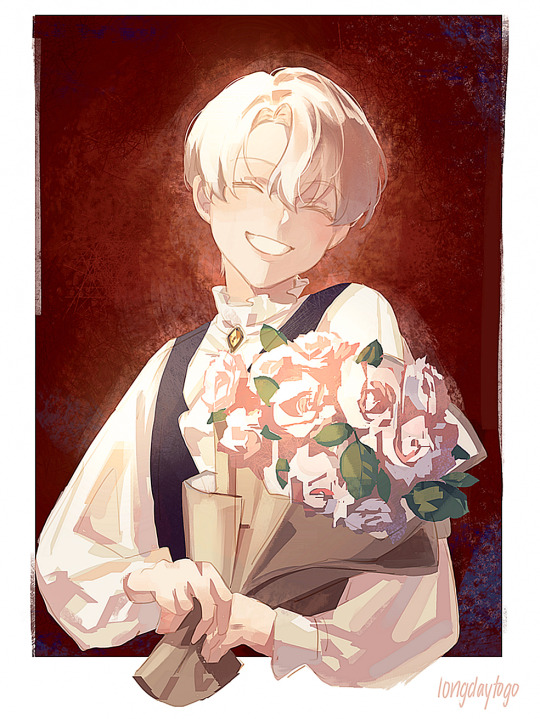
the boy in the portrait
@hotchnaur wrote a fic for this!
This is based off a little snippet I wrote which honestly isn't much (since I have absolutely no writing skills) but was more of a "I need to write this down before it disappears forever from my brain" kind of rush.
This takes place in an AU where Draco didn't make it out of the Fiendfyre, but the war is won and done. The Ministry has ordered a cleanup and seizes pureblood residences, namely Malfoy Manor, and Harry volunteers to inspect the property. He doesn't know why he did, but still apparates to the front gate, in a sort of trance since the Room of Requirement incident, not fully understanding why he's feeling so.
As he walks up the spiraled stairs and down the long corridors, it hits him that he's in the Malfoy ancestral home, the very place where Draco grew up. The eerie quiet is interrupted by the sound of a child crying and murmured shushes from a further corridor up the path. When he follows the sound, he's greeted by a long line of portraits, all old and dead, glaring at Harry before sharply turning and disappearing into their paintings.
He continues down the path until he gets to the very last portrait—a young boy crying, fisted hands covering his face. The other portraits tell him to "pipe down that noise" before vanishing, leaving only Harry and the young boy. When Harry approaches the smaller boy in the portrait to ask if he's alright, he stops dead in his tracks. It's Draco. A much younger Draco who looks to be around 6 or 7, much smaller than his first year at Hogwarts with his signature white blond hair and not-so-pointy chin.
Young Draco sniffles, wipes away his tears, and looks up at Harry, confused about who he is. He asks where his mother and father are and how lonely he is here. He explains how he "woke up" one day in this portrait and feels scared. How all the other portraits (namely Great Great Aunt Belvina and Grandfather Cygnus) won't answer his questions and only tell him to be quiet.
Harry stares at the younger Malfoy absentmindedly. He tells Draco he's here to stay for a while and asks if he has any messages for Lucius and Narcissa. "They're out right now but they'll be back shortly," he says, and young Draco's eyes light up. Draco finds a willing listener in Harry and tells him about how sad he is here, how delightfully boring it is, about his new toy dragon from Diagon Alley and about that one time Pansy and Theo fell face first in a puddle of mud as he and Blaise had watched, giggling while saying so.
Harry quietly listens, noticing he still points his nose up tauntingly while teasing and the way his haughty air or confidence seems to permeate the conversation. Harry tries to absorb all that he can, overlapping this young Draco with his Draco—noticing their similarities and difference where one is all childlike innocence and laughter, while the other only a mere husk of a boy towards his final days.
Young Draco tells Harry about his first flying lesson and his new broomstick when he suddenly asks if Harry knows "Harry Potter." Shocked, Harry asks how he knows the name when Draco, going a bit red in the ears, replies back how he's going to be Harry's best friend at Hogwarts ("once my letter arrives in a few years!") he says proudly. He tells Harry how he's made father buy out all the books on "Harry Potter" and how mother reads them to him nightly.
Draco makes Harry promise not to tell anyone, sharing that he only revealed it to so because he had shared so much already. Harry promises and, feeling a bit disheartened, says he needs to go, but he'll come back soon. Young Draco pouts and whines but understands, reminding Harry to pass along the message to Lucius and Narcissa. He waves goodbye, on the promises of "I'll see you later," and disappears into his portrait. Harry watches the boy vanish, then turns to leave down the corridor he came.
Walking down the stone path back to the gate, he recalls a boy with teary eyes surrounded by scorching flames and another boy dreaming of befriending the Boy Who Lived. He leaves Malfoy Manor feeling choked and a little worse than when he arrived.
#harry potter#draco malfoy#i cannot write for shit but i hope this was somewhat legible if at least entertaining#i hope???#I TRIED#portraits only come to life once the subject is confirmed deceased#so uhhh draco is DEAD dead
2K notes
·
View notes
Text
Continuation to the Ghost Reimi haunting Rohan
Dedicated to @hittossan since you wanted to see what happens next!
---
A few weeks prior to the posession incident, Reimi had found herself in Morioh once more only this time without her beloved pet Arnold. For what reason? It was beyond her. However, instead of it filling her with unease and sadness, she viewed it as a chance to spend time with Rohan after finding him on his way to the local art store near Owson.
The intial shock in Rohan's face was quite hilarious, with eyes blown wide as if he had seen a ghost to almost dropping the supplies he was carrying on the sidewalk when she came by to say hello. It was understandable, considering the last time they've seen each other was when he reluctantly admitted to missing her, thinking it would be the final time they would see each other. Reimi playfully teased him on the matter before letting Rohan ask about her return. All she could do was shrug at this, telling the artist that she's stuck here, alone as she faced away from him to let out a dramatic tired sigh.
Her ploy must have been so obvious to Rohan if his eye rolling was any indication of it, and yet despite this, he still invites her to stay with him. After all, he wasn't so heartless as the leave his deceased babysitter in town, even if nothing can harm her. Besides, maybe he can question her about what she about the past since asking about her struggle against Kira was still a touchy subject.
And like that they both became roomates, or something similar to it. For the most part, Reimi would keep Rohan company over in his studio talking about various topics, complimenting his artwork while bringing up some old drawings he gave her as a kid (although Rohan venomously refused it), and also reminding him to eat or sleep occasionally before going off to explore the spacious rooms the mansion had to offer.
One thing she had noticed about the mansion was the lack of framed photos on the walls. It revealed an image of loneliness which was a stark contrast to the Kishibe household she came to know. Did something else occur after she passed away? She tried asking Rohan about the photos before and was told that he had no use for them, but they were safe with his grandmother and nothing more beyond that.
She decided it was best to not pry into it as she continued her exploration- most of the rooms were nicely decorated but ultimately favorite place to be in so far was in the attic; although it remained dusty and seemed nothing more than a storage room with a few trunks and furniture covered with blankets, she enjoyed it for the large gazebo-like window panes, giving her a perfect view of the moon illuminating the small seaside town she grew up in. She would find herself sitting by the ledge once Rohan had fallen asleep, wondering if Rohan ever invited others to visit his home. She knew he was a private person yet it made her heart ache with sympathy on how different he was from the Rohan she once knew.
She wanted to help him at least with this, so she began trying to involve the people Rohan knew into their conversations. It had worked well for a moment until she came to the subject of Josuke Higashikata where he quickly soured and went on a long rant on how he hated the overgrown delinquent for being friends with someone as respectful and kind as Koichi. And out of respect for the prideful artist, she had to cover her mouth to hide her giggles, seeing how this was the first time since they spoke that Rohan had opened up to her about someone without dodging or going for the short responses she was used to when she asked personal questions. It made her remember a similar situation when Rohan was coming home from elementary school with a bloody nose and tattered clothing, wiping away fat tears that threatened to fall from his eyes as he tells her how much he hated Kyoko from his class for beating him up. It was partially his fault that time considering he harshly criticized her drawings, but in the end she remembered Rohan harboring a crush on that girl and drew a picture of flowers as an apology for what he had done.
Of course Reimi had to make sure so she often brought up the subject of Josuke just to gauge the mangaka's reactions and learned he held some respect for the teen despite the trash talking. She even found a sketch of Josuke when she was peeking through one of Rohan's recent sketchbooks, prompting her to believe that there was something more there. She didn't confirm it until she accompanied (followed) Rohan in one of his outings to visit Koichi and his friends ("Koichi's friends" Rohan corrected her) to see how the two interacted. It was unbearable to watch with Rohan rejecting any politeful advances from the teen, yet making his annoyance evident when one of Josuke's fangirls stopped by to flirt with the him. Rohan wouldn't acknowledge Josuke at all after that, holding conversations with Koichi or even Mikitaka who rarely came to these meetings.
It was so clear Rohan had a thing for Josuke and by the looks of it so did Josuke, so when she had possessed Rohan she thought of it as a blessing in disguise and made Rohan spit out the words he wouldn't have been able to say on his own. Sure it cause Rohan ignore her for a few days... and run and hide himself away from everyone, but it was worth it when she sees Josuke appear by the doorsteps of Rohan's house.
And now the once empty house she occupied in was filled with life as she hears the loud clamoring over some board game in the living room. It was mostly from Okuyasu and Josuke, but she would faintly hear a chuckle or two coming from Rohan as well. In the kitchen, there was the sound of a microwave dinging over some pizza poppers that finished cooking, and the light chattering of Koichi and Yukako as they looked through the cupboards for plates to serve. Humming to herself, she made her way up the stairs only to stop by Rohan's studio, quietly entering the space as she hovered over his desk. There she sees two photo frames standing on the left corner of the desk, one with Rohan and his friends and another of just Rohan and Josuke- with Josuke wearing the dopiest grin on his face while holding a flustered Rohan by the waist. She couldn't help but smile contently for the new couple as she made her way to the attic.
For some strange reason she felt more relief than she ever had when Kira was no longer a threat and found herself feeling tired. As she rested against the window ledge once more, she discovered there was a portrait of herself, with the words "thank you Reimi" written on the bottom of the canvas. If she had the energy to cry she would have done so, wishing she could remain by Rohan's side for as long as she was allowed to, however knowing that her Ro-chan was going to be okay was enough for her to finally drifted to a dreamless sleep.
29 notes
·
View notes
Text
Year End 2018: Derek Taylor
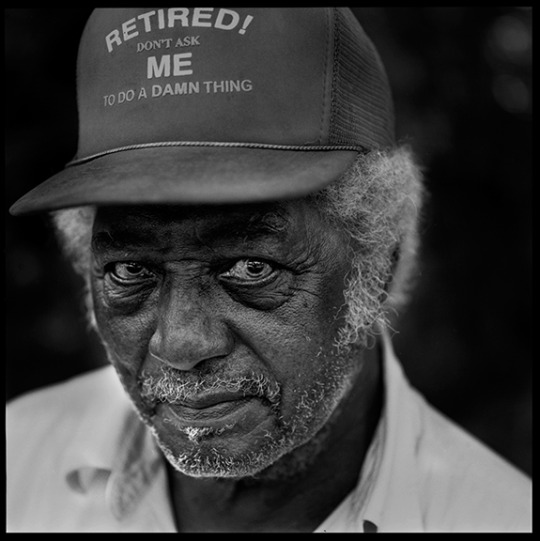
Another year above ground. Another year salvaged in no small part through the solace of music. That may register as a Limbo-worthy low bar for measuring life satisfaction, not mention one hopelessly awash in hyperbole, but there’s a reason. The sobering sense of normalcy that’s come to characterize the daily insanity of the world writ large and small makes the railing and grousing about it through a laptop keyboard feel at once futile and arrogant. Many of us still have it pretty good, if not better. Able to move and think freely. Fortunate to readily find the time to spend sequestered with art, whatever the senses and thoughts it stimulates. Plenty of others can’t consistently say the same. That ever-widening disparity weighs on my mind with a regularity that makes the compiling and commentary of lists such as this seem both a luxury and a necessity. We’re all in it together and revitalizing music is as meaningful a reminder as any of that steadfast reality. If only the orange orangutan still soiling the Oval Office and the psyches of millions (if not billions) would swap the MAGA-emblazoned nonsense that’s his usual headgear for the Burnside brim pictured above and mean it!
No real ranking to the entries below other than the general order to which they visited me through contemplation and return engagement.
Eric Dolphy – Musical Prophet: The Expanded 1963 New York Sessions (Resonance)

Released in haphazard, infrequent and incomplete editions, Eric Dolphy’s interstitial work (landing between his formative tenure at Prestige and his solitary masterpiece for Blue Note, Out to Lunch) under the aegis of producer Alan Douglas has never really received a fair shake from curators and critics alike. That long-standing slight was rectified this year with the Record Store Day release of Musical Prophet: The Expanded 1963 New York Sessions on the Resonance label. Rescued, enhanced and appended with 85-minutes of previously unreleased music and a lavish 100-page book stocked with scholarly essays by the likes of flautists James Newton and Nicole Mitchell, Sonnys Rollins and Simmons, Han Bennink, Henry Threadgill, Oliver Lake and others it’s an unprecedented boon on all fronts. The CD version of the set is slated for a 1/25 street date.
Barre Phillips
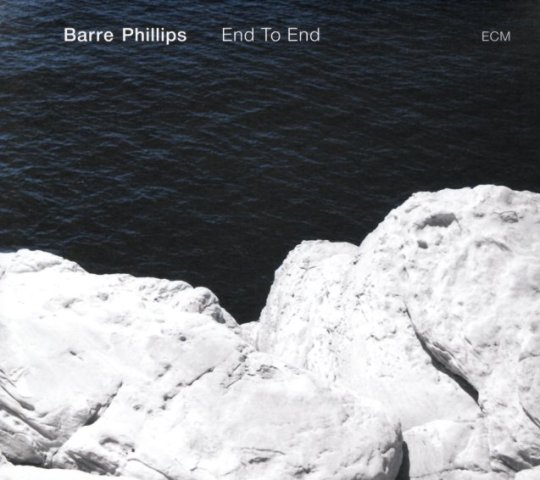
Octogenarian expatriate bassist Barre Phillips has sustained a relatively steady output in the 21st century, but End To End, a solo set (his purported last) for ECM, and a Oh My, Those Boys!, a timely reissue of his extended duets with Japanese confrere Motoharu Yoshizawa on the Lithuanian No Business label are aural confirmation of his consistency across decades. Alone and self-limited to the length of a LP he sculpts a somber soliloquy of intimate communion with his instrument. In the fast company of Yoshizawa, who fields a custom-made electric upright, the mood is much more frenetic in playful. Both settings are aurally transfixing.
Mingus – Jazz in Detroit/Strata Concert Gallery/46 Selden

Weighing in at a mighty five-discs, Jazz in Detroit/Strata Concert Gallery46 Selden dispenses with Christian name specifics and allows surname to suffice in announcing its bigger-than-life subject. Mingus’ instrumental faculties weren’t quite as consistent as the virtuosic powers that propelled him in youth (he had just over six years to live in the winter of 1974 when this material was captured), but any effects of advancing age fall away when he calls a tune, soloing with strength and at length and according his auspicious sidemen including drummer Roy Brooks who is ostensibly responsible for the recording’s survival. Retooled staples like “Pithecanthropus Erectus” and “Peggy’s Blue Skylight” join newer improvisational springboards like “The Man Who Never Sleeps” and “Noddin’ Ya Head Blues” to form a veritable smorgasbord of vibrant small group, stage-born jazz.
Peter Brötzmann

The venerable German road dog always has a place on this list. Now somewhat miraculously pushing eighty he’s still at it, crisscrossing the globe and breaking hearty musical bread with friends old and new. Three releases stood out to these ears: two recent duos and a welcome reissue of Hot Lotta, one of his early free jazz missives recorded almost five decades earlier with faithful countryman Kowald and the Finnish duo of Juhani Aaltonen and Edward Vesala. In the must-hear duo column reside, Ouroboros, a 2011 German club date with Chicago cellist Fred Lonberg-Holm on Astral Spirits, and Sparrow Nights on Trost, a wrenchingly intimate studio encounter with pedal steel phantasmagorist Heather Leigh, who ranks easily among Brötzmann’s most intriguing recent coconspirators.
Corbett vs. Dempsey
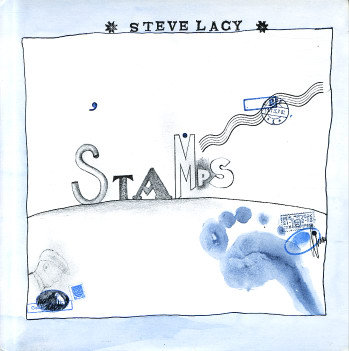
Keeping the Corbett vs. Dempsey count to just three for the year is a tough task as their usual prolificacy combined with a commensurate excellence. The reissue of Steve Lacy’s seminal Stamps, originally released in 1979 as his debut for the Swiss Hat Hut imprint narrowly edges out the equally edifying appearance of Milford Graves long-lost Bäbi if only because my spouse allows me to spin the cacophonously calorific latter platter only in her conspicuous absence. A decade was a long time to wait for Joe McPhee and Hamid Drake’s duo follow-up, Keep Going, this time trading stage for studio. But from the music to the mantra-ready title it’s a welcome inoculation against the forces of idiocy and ire globally arrayed against those with humanist allegiances.
Guy Lafitte

Last year it was Lucky Thompson. This year French tenorist Guy Lafitte got the Fresh Sound archival treatment with four full discs of material from his heyday as one of his country’s most popular indigenous purveyors of jazz. Each set delves into a different side of his folio from tight ensembles to modestly-sized orchestras, sometimes in the company of visiting guests, but more often plying his sound amongst a core crew of fellow believers. One of former, Michel de Villers, also earned a survey with The Complete Small Group Sessions 1949-1956 that shows him living up to the sobriquet of “Low Reed” at length on deftly deployed baritone saxophone.
Steeplechase
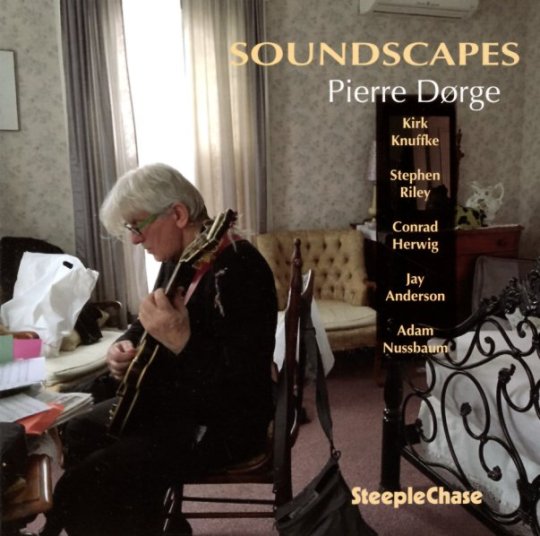
The Danish Steeplechase label always seems to slot in my yearly look back, mainly because of the consistency of both their roster and long-standing aesthetic. Sea changing surprises instigated by their records are exceedingly rare, but the odds of a stimulating listen are conversely high with virtually every release. Guitarist Pierre Dørge’s Soundscapes convenes a quintet with tenorist Stephen Riley and cornetist Kirk Knuffke in the service of the leader’s customarily open-ended compositions. Riley’s Hold ‘Em Joe is at once a canted tribute to Sonny Rollins and a welcome return to the piano-less trio format he first cut his teeth on for the label a decade ago. Baritonist Gary Smulyan’s Alternative Contrafacts yields winsome results with the instrumentation as well in a creative nod to the sort of extrapolations that were the fertile province of the Tristano School in the last century.
No Business/Chap Chap

A partnership between the No Business label and the Korean Chap Chap imprint continues to yield impressive reissues. All in circulation to date are worthy of consideration, but two bent my ears with pleasing consistency. Kang Tae Hwan’s Live at Café Amores offers an extended concert for solo saxophone that is equal measures Zen meditation and extended techniques master-class. Choi Sun Bae Quartet’s Arirang Fantasy teams a trio of Korean improvisers with visiting Japanese bassist Motoharu Yoshizawa for another café set that is ripe with cross-cultural creativity. Lastly, a reissue of sorely unsung vibraphonist Bobby Naughton’s 1976 masterstroke The Haunt with Leo Smith and the recently-deceased Perry Robinson (R.I.P.) in a setting of creative chamber jazz perfection.
Jimi Hendrix – Electric Ladyland 50th Anniversary (Sony)
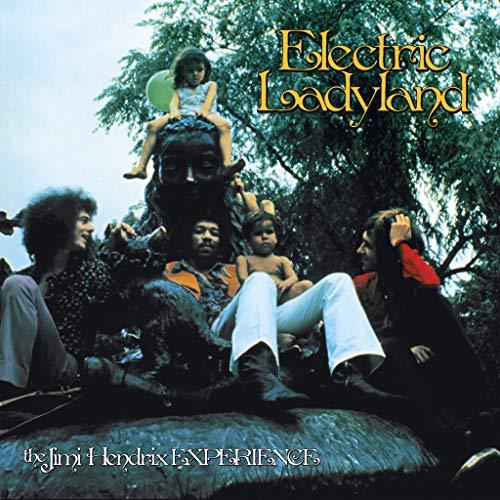
Repackaging of milestone rock albums is still the rage even as the compact disc as a physical musical format continues to wane with advance of other intangible digital formats. Hendrix has had his fair share of legacy parceled and promoted along these lines and it’s hard to fault the family for seeking to both cash-in and do right by his memory. Electric Ladyland 50th Anniversary does better than most past projects in this regard by hewing to a logical presentation and proffering some genuine value across three compact discs, a Blu-ray and a lavish LP-sized container replete hardcover tome covering all the minutiae of the original double-album phenomenon. And let’s face it, Hendrix fooling around with songs in their protean forms is more fun than sitting down with most rock musicians’ finished product.
Jack Sels – Minor Works (SDBAN)
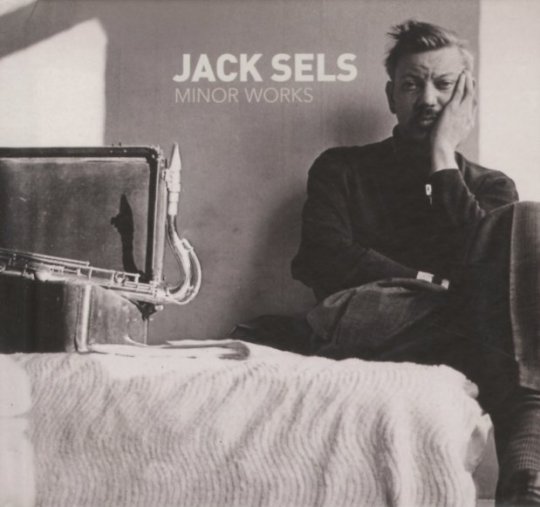
Parts of Belgian Jack Sels biography read like Hollywood-ready bohemian melodrama with riches, rags, tragedy and triumph all sewn into the story of a saxophonist who spent much of his life trying to capture the magic of his American idols while remaining fiercely true to his European roots. That latter decision explains his relative anonymity today, but the expertly-curated if humbly-titled Minor Works is practically bursting with recovered music and anecdotal context that frames a vivid portrait of a player well-deserving of posthumous consideration.
Jon Irabagon
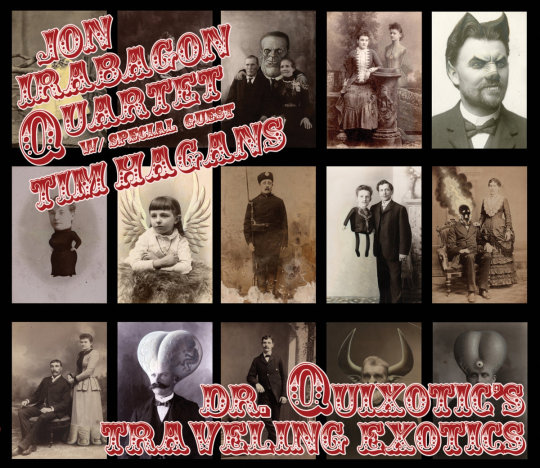
Irabagon’s a dues-payer, tireless and admirably selfless in his dedication to a revolving door of projects and regular gigs. A recent interview with clarinetist & podcaster Jeremiah Cymerman reveals just how cool and unflappable a customer the Filipino-American saxophonist can be as he relates exercising the patience of Job in the face of dunderheaded racism by erstwhile peers. On the aural front two specific contexts stuck with me as evidence of his indefatigability. Dr. Quixotic’s Traveling Exotics on his own Irabbagast imprint teams his quartet with veteran trumpeter Tim Hagans in a program that feels like a natural and more focused extension of earlier work in Mostly Other People Do the Killing. Dave Douglas��� Brazen Heart: Live at the Jazz Standard released on the trumpeter’s Greenleaf label explores one of Irabagon’s recurring sideman posts and at length over eight discs covering a four-night stand at the titular NYC club in 2015.
Roscoe Mitchell
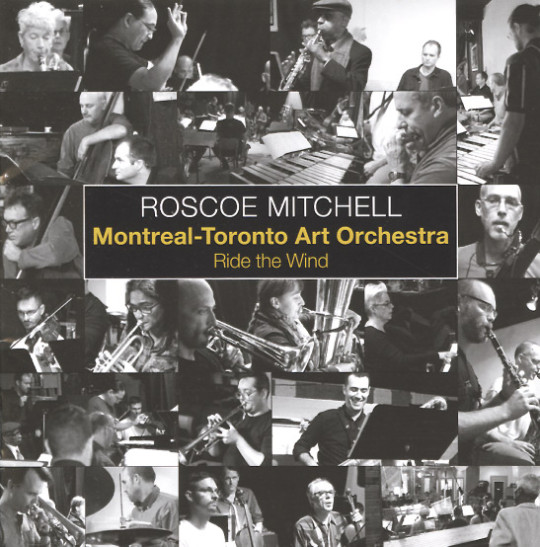
Recent and nascent masterworks with nearly a half-century of revelatory activity between them, Ride the Wind (Nessa) and Sound (Delmark) represent two essential signposts in Roscoe Michell’s reliably iconoclastic career. Both center on the blurring the subjective boundaries between improvisation and composition. Whether adapting improvised solos to orchestral charts or atomizing ensemble interplay into a freeing malleable framework that can take participating musicians in a multiplicity of expressive directions, Mitchell’s courageous adherence to personal designs and investigations has always been the bedrock of his work.
Intakt
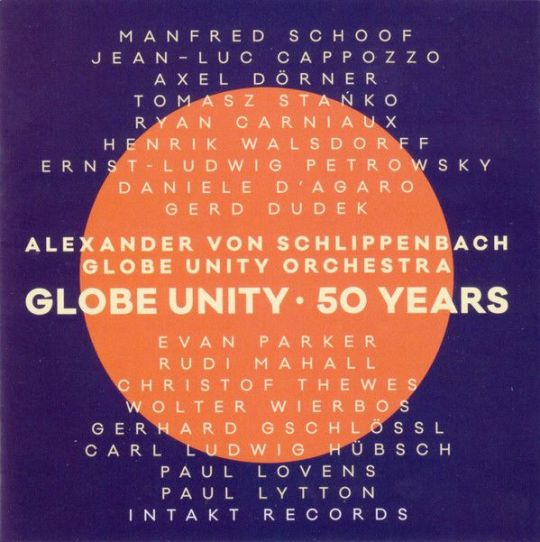
The Swiss Intakt imprint bridges the best aspects of a classic label construct (reliable stable, dependable production values, deep catalog, etc.) with a refreshing willingness to tweak the formula through a voracious ear for new talent. German altoist Angelica Niescer’s triumphant Berlin Concert and a pair of from Cuban pianist Auran Oritz, Live in Zurich with his working trio and Random Dances and (A)tonalities in the unexpected company of clarinetist Don Byron fit that latter bill. Globe Unity 50 Years celebrating the half-century longevity of Europe’s most influential improvising orchestra and Music for David Mossman by the equally indelible trio of Evan Parker, Barry Guy and Paul Lytton argue conclusively that the former end of Intakt’s endeavors is equally secure.
Clean Feed

Staunch loyalists to the tradition of improvisational album in physical form, Lisbon-based Clean Feed doesn’t just soldier on, it leads away with a release docket that reliably weds frequency with dependability. The sixteen discs that hit circulation in the span since January all have elements to recommend them, but two stuck to my ears and cranium more tenaciously than the others for both their audacity and intimacy. Vocalist Serpa’s Close Up is exactly that, a sans-net song forum with the stark support of Ingrid Laubrock’s saxophones and Erik Friedlander’s cello as the sum of sounding board. Similarly, trumpeter Susana Santos Silva’s All the Rivers situates her solitary horn in the unforgiving acoustics of the Panteão Nacional, a vast marble cathedral, for a recital rife with reverberating complexity.
Satoko Fuji – 12 for 60 Project
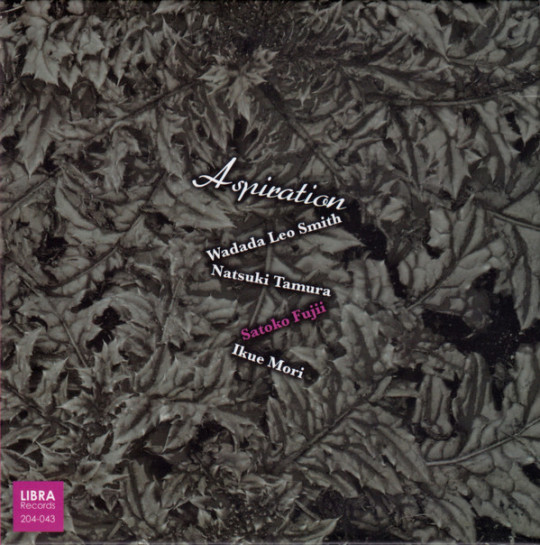
Year-long artist celebrations through output aren’t exactly common, but there’s certainly precedence (bassist Reuben Radding’s 12 in 2007 springs to mind). Already admirably prolific Japanese pianist Satoko Fuji decided to commemorate her 60th birthday on the planet by releasing a dozen albums on the Libra label over the course of the annum. As with her back catalog, many of them featured her kindred spirit Natsuki Tamura on trumpet as well as ensembles both familiar and freshly-minted. I’m still digesting the series in sum, but the standout so far is Aspiration, the core duo’s conclave with Wadada Leo Smith and electronicst Ikue Mori. Fuji has an admitted tendency to crowd the market and numb the senses with her productivity, but the focus and unity guiding these releases sets them apart.
Voices of Mississippi: Artists and Musicians Documented by William Ferris
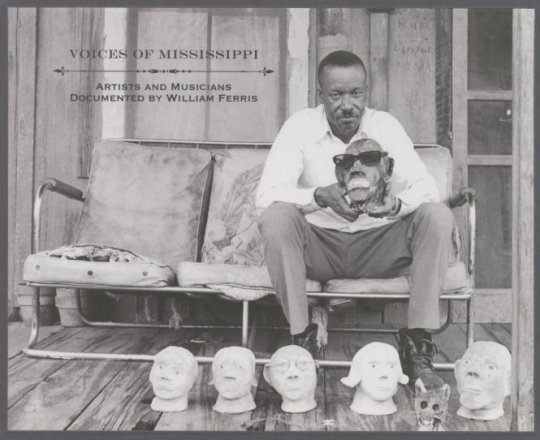
In common with the intimation of its name, Dust to Digital is a label that takes its time in the laudable work of producing archival music collections that stand instantly apart in terms of quality, scope and expertly-examined context. Voices of Mississippi: Artists and Musicians Documented by William Ferris is a work of art from the packaging to the sounds (and sights) contained within. Incisively indexed into three categories (Blues, Gospel & Folk), the field recordings are immersive and often carry the mesmerizing magic of incantations. A fourth disc containing a DVD collection of Ferris’ hand-shot films evokes time, place and person even more vividly. Temporary antidotes to slowly normalizing nightmare we find ourselves in as a world abound on this list, but this the one I have probably returned to most since my first encounter. It’s that transportive.
V/A – Technicolor Paradise: Rhum Rhapsodies & Other Delights

Exotica was originally indicative a certain slice of commercial music expression, one inextricably entangled in associative issues of appropriation, exploitation and in many cases mollification of indigenous cultural capital. Sometimes it was a complete recontextualization entirely as Numero Group’s Technicolor Paradise explores over three discs and an associative booklet brimming with commentary. This sort of deep crate project is nothing new for the label, but it is gratifying to see them go at it with such gusto after an earlier and unexpected embrace by the label honchos of streaming as a means of revenue. Some selections tip irrevocably into bromidic kitsch, but the first disc especially, which focuses on guitar bands keeps a more even keel of interest.
Charlie McCoy – Real McCoy/Charlie McCoy/Good Time Charlie/Fastest Harp in the South
Jerry Reed – Jerry Reed Explores Guitar Country/Cookin’/Georgia Sunshine/Me & Jerry (w/ Chet Atkins)
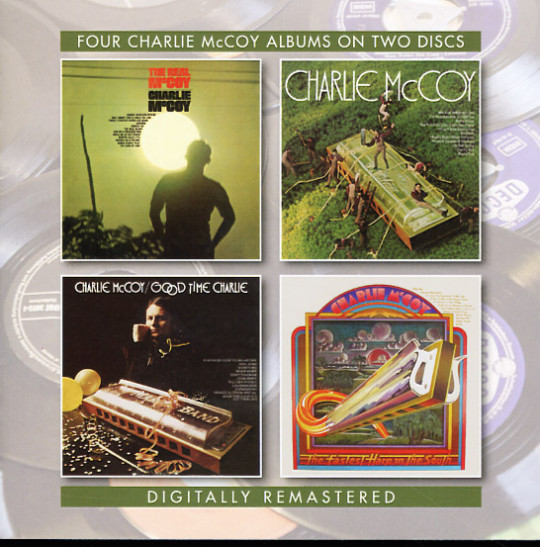
Time was when a two-fer reissue was a common currency in the compact disc market place. BGO’s done that erstwhile staple two better maintaining a fearsome foursome reissue program. Sets by country mouth harp maestro Charlie McCoy and good old boy-turned-ace guitar picker-turned-movie star Jerry Reed. Both are dipped liberally in countrypolitan production values that only occasionally slide over into schmaltz and McCoy wisely avoids vocals in favor of instrumentals that often sound like they could serve as soundtrack snippets to The Rockford Files (not a bad thing). Reed by contrast had a decent set up pipes to complement his strings-slinging skills and the chutzpah to try his hand at dry humor like the hilariously off-the-cuff ode to inconsolable nicotine addiction, “Another Puff.”
V/A – The Beginning of the End: The Existential Psychodrama in Country Music 1956 to 1972 (Omni) V/A – Hillbillies in Hell: Country Music’s Tormented Testament (1952-1974) – The Resurrection (Omni) V/A – Hillbillies in Hell: Country Music’s Tormented Testament (1952-1974) – The Rapture (Omni)
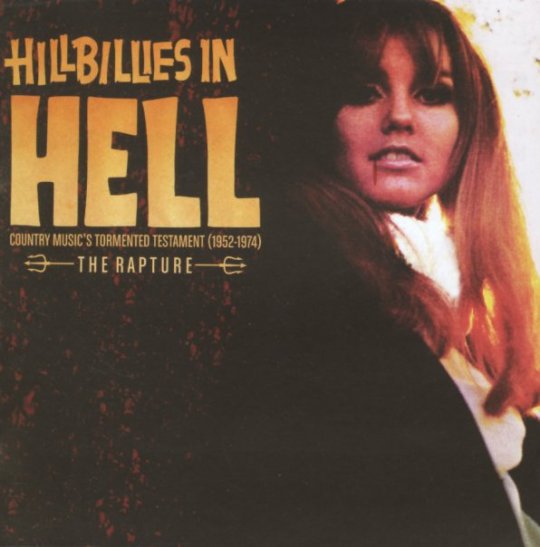
After an unexplained although far from unnoticed hiatus several years ago, the Omni Recording Corporation out of Australia roared back to life with renewed reissue campaign. The schedule of new projects eschewed full album(s) + plus bonus tracks for keenly curated collections focusing on the wilder and more tortured sides of the vintage country and country/pop spectrum. The Beginning of the End details descents into madness committed to song while two volumes more of the ongoing Hillbillies in Hell series doubled the entries to date describing that region of idiom(s) devoted to Beelzebub and his myriad earthly incarnations. All three are archly edifying as they are fun.
Sun Ra
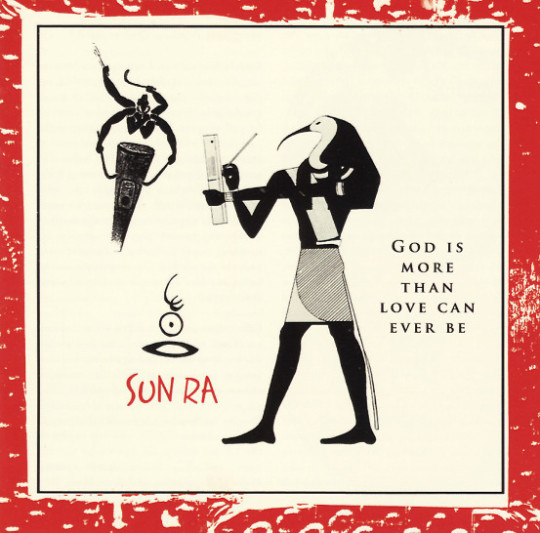
Sun Ra reissues are once again a semi-regularity now thanks to reissue operators like Modern Harmonic and Cosmic Myth, both of which have conscripted longtime Ra repository Michael D. Anderson in their noble endeavors. Cymbals/Symbol Sessions: New York 1973 covers ground previously mapped by an earlier set on the Evidence label pairing worthy material including the (16:33) John Gilmore tenor <I<tour de force “Thoughts Under a Dark Blue Light.” God is More Than Love Can Ever Be has singular status as the solitary piano, bass and drums trio album in the entirely of Ra’s omniversal oeuvre and largely lives up to the stated promise of that proposition.
25 more in no fixed order...
Tyshawn Sorey – Pillars (Pi)
Henry Threadgill – Dirt… And More Dirt (Pi)
Peter Kuhn Trio – Intention (FMR)
Dave Holland – Uncharted Territories (Dare2)
Devin Gray – Dirigo Rataplan II (Rataplan)
John Coltrane - Both Directions at Once: The Lost Album (Impulse!)
JD Allen – Love Stone (Savant)
Fay Victor’s SoundNoiseFunk – Wet Robots (ESP-Disk)
A Pride of Lions – The Bridge Sessions 8
Michael Adkins – Flaneur (hatOLOGY)
Houston Person & Ron Carter – Remember Love (HighNote)
Spontaneous Music Ensemble – Karyobin (Emanem)
Cecil Taylor – Poschiavo (Black Sun)
Paul Rutherford – In Backwards Times (Emanem)
Mike Westbrook Concert Band – The Last Night at the Old Place (Cadillac)
Ustad Zia Mohiuddin Dagar – Raga Yaman & Ragas Abhogi & Vardhani (Ideologic Organ)
Kitsos Harisiadis – Lament in a Deep Style: 1929 to 1931 (Third Man)
Asnakech Worku – Asnakech (Awesome Tapes from Africa)
V/A – African Scream Contest 2 (Analog Africa)
Mulatu – Afro-Latin Soul (Worthy/Strut)
V/A – Listen All Around: The Golden Age of Central & East African Music (Dust to Digital)
V/A – Ocora – Le Monde Des Musiques Traditionelles (Ocora)
V/A – Music City Blues & Rhythm (Ace)
Professor Harold Boggs – Lord Give Me Strength: Early Recordings 1952-1964 (Nashboro/Gospel Friend)
Yuri Morozov – Strange Angels: Experimental & Electronic Music (Buried Treasure)
#dusted magazine#yearend 2018#derek taylor#eric dolphy#barre phillips#charles mingus#peter brotzmann#corbett vs. dempsey#guy lafitte#steeplechase#no business#chap chap#jimi hendrix#jack sels#jon irabagon#roscoe mitchell#intakt#clean feed#Satoko Fuji#voices of mississippi#technicolor paradise#charlie mccoy#jerry reed#the beginning of the end#hillbillies in hell#sun ra
5 notes
·
View notes